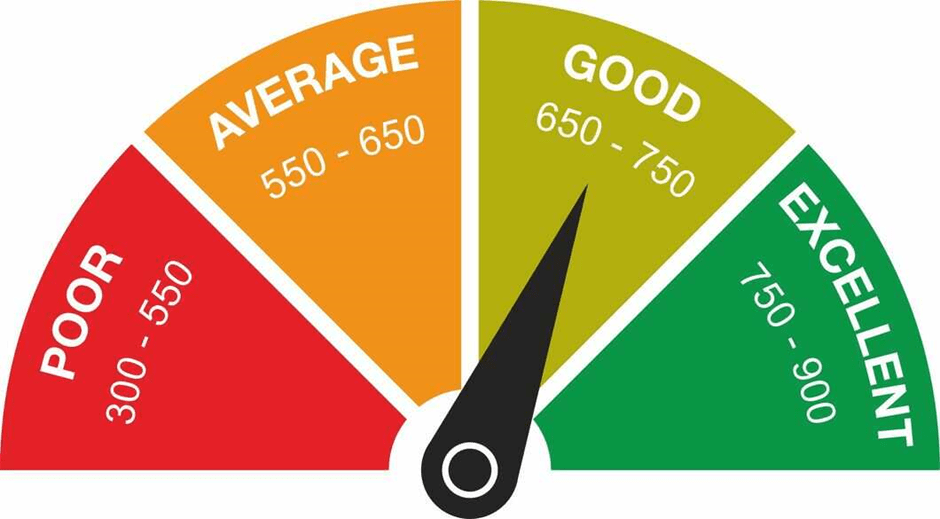A CIBIL score is a crucial parameter that banks and financial institutions use to assess the creditworthiness of an individual. The score ranges between 300 and 900, and a score of 750 and above is generally considered good. A high CIBIL score increases the chances of loan approval and enables borrowers to negotiate better interest rates and terms with lenders. To calculate the CIBIL score, the credit bureau considers an individual’s credit history, payment patterns, credit utilization ratio, and credit inquiries.
Late payments, defaults, and high credit utilization ratios negatively impact the CIBIL score, while timely repayments and a low credit utilization ratio can positively influence the score. A good CIBIL score facilitates access to credit and reflects an individual’s financial discipline and credit worthiness. Maintaining a good CIBIL score requires regular credit monitoring or CIBIL score online checking, timely repayments, and responsible use of credit.
Listed below are the 4 most important aspects of your CIBIL score
Account history
Account history includes the names of your lenders, the type of credit you have, such as a credit card or auto loan, your current balance, the date of your last payment, your account number, and the date you first opened the account. It’s essential to review this information carefully and ensure that there are no errors, such as incorrect balances or missed payments, that could negatively impact your CIBIL score. By identifying and correcting any mistakes in this section, you can improve your credit standing and increase your chances of being approved for loans or credit.
Credit Inquiries
When applying for a loan or credit card, lenders typically review your credit report to assess your creditworthiness. This report contains details about your debt load, payment history and frequency of application. Credit inquiries are requests made by lenders or financial institutions to access your credit report and CIBIL score. Having too many inquiries on your file could negatively impact your CIBIL score and make it harder to be approved for loans or cards in the future. So it is also important to monitor your credit enquiries.
Public Records
The section is typically found in credit reports and is crucial for lenders to assess a borrower’s financial health and risk level. It provides information on an individual’s past and current financial behavior, including any outstanding debts, delinquent payments, bankruptcies, and other negative marks related to money. It is essential to review this section regularly to ensure accuracy and identify any potential errors that may negatively impact CIBIL score and loan approval rates.
Credit summary
This report provides a detailed listing of all credit accounts an individual has held or currently holds and any outstanding balances such as revolving accounts like credit cards or installment contracts for car loans. Banks and financial institutions use this data to assess an individual’s creditworthiness and ability to repay debts. The report also shows payment history, outstanding balances, and delinquent accounts. Lenders may also check the credit summary report to decide whether to approve or deny loan applications or to determine the interest rates and terms of the loan.
Check your CIBIL score online
To check your CIBIL score online:
- Visit the website of a financial institution like Bajaj Finserv.
- Look for the CIBIL score online checking option on the website.
- Provide your name, date of birth, PAN card number, and contact details, and then submit the form. You will receive an OTP to verify your identity on your registered mobile number.
- Wait patiently while your CIBIL score is generated.
- Once generated, you can access your CIBIL score online.
You can also utilize Bajaj Finserv Credit Pass, a premium service that provides unlimited access to your CIBIL score and credit report. It is a reliable and accurate tool for checking your CIBIL score online.
Conclusion
The CIBIL score is a critical parameter that reflects an individual’s creditworthiness and financial health. It is calculated by the Credit Information Bureau India Limited (CIBIL) based on an individual’s credit history, including credit card payments, loan repayments, and credit utilization. A good CIBIL score is essential for availing of loans, credit cards, and other financial products at lower interest rates. Timely payment of credit card bills, managing credit utilization, and maintaining a good credit mix is vital for maintaining a healthy score.
Moreover, monitoring or CIBIL score online checking regularly on Bajaj Finserv Credit Pass and correcting errors are equally important to ensure the accuracy of the credit report. While a high CIBIL score is desirable, it is essential to note that building and maintaining a good score takes time and effort. Consistent credit behavior and responsible financial management are key to maintaining a healthy score. Individuals should maintain a good CIBIL score to avail themselves of several financial opportunities at a lower cost.










